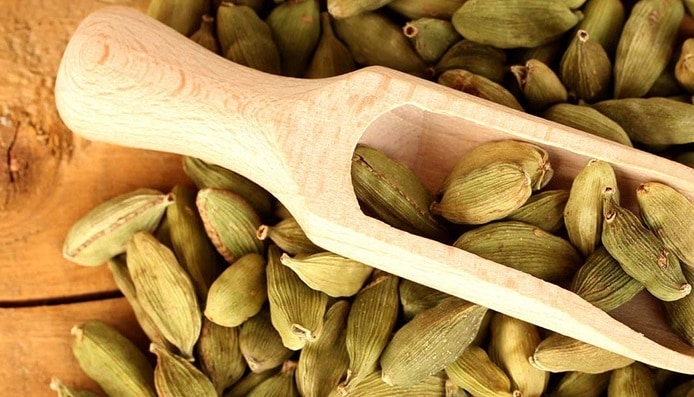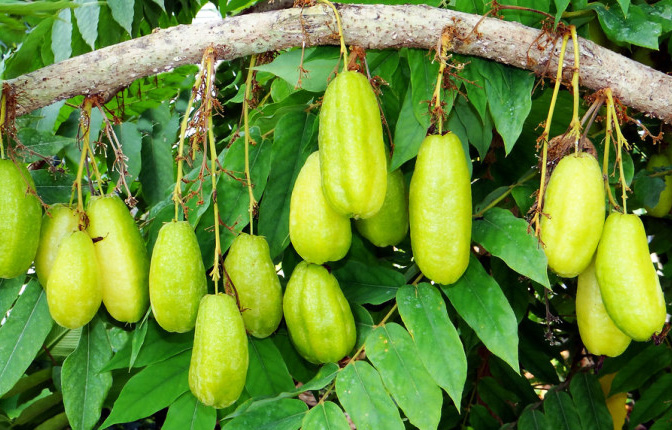Cardamom is one of the known spices today. Also known as cardamum or cardamon, it is native to India, Nepal, Indonesia, Bhutan, Bangladesh, and Pakistan. As a spice, cardamom has the following health benefits.
General Nutrition
Cardamom is rich in vitamins and minerals. According to Nutrition and You, the spice contains vitamins A, B, and C. Vitamin A is essential for vision and integrity of the skin and the mucus membranes while vitamin B is essential for nervous function, which includes learning, thinking, sensation, and memory. Meanwhile, vitamin C is important in boosting the body’s defenses against infection and illness. Also, vitamin C promotes the function of the substance called collagen, which acts as cement and binds cells and tissues that have loose connections.
In terms of minerals, cardamom contains calcium, copper, iron, manganese, magnesium, phosphorus, zinc, sodium, and potassium. Calcium and phosphorus are beneficial to the bones and teeth, as well as to the heart’s contractility. Manganese and copper, on the other hand, work together to promote the growth and development of cells and tissues. Also, both facilitate improved cellular and tissue metabolism. Then, iron promotes oxygenation of cells and tissues while magnesium boosts neuromuscular health and function. Zinc promotes digestive health and wound healing. Then, sodium and potassium work together for fluid balance. Potassium counters sodium’s water retention activities and it also helps in the proper contraction of the heart.
Cardamom and Asthma
Cardamom also helps prevent and manage asthma. According to Organic Facts, cardamom can also be utilized as a remedy for asthma and some number of respiratory disorders. As per the publication, a study found that crude extracts from the spice were efficient in dilating windpipes in animal species in the laboratory, not to mention that they have also demonstrated efficacy in relaxing the tracheal tissues. While the results were positive, more evidences are needed.
Cardamom and Cardiovascular Health
Cardamom also helps promote cardiac health. According to Mercola, the spice was given to 20 newly diagnosed individual with primary stage 1 hypertension to study its impact to cardiovascular health. As per the publication, the subjects were given cardamom powder for 12 weeks. Their baseline blood pressure was taken, which was followed-up every four weeks for three months. The study team found that cardamom powder considerably reduced systolic, diastolic, and mean blood pressure. Conversely, the spice heightened fibrinolytic or blood clot-inhibiting activity. In addition, overall antioxidant status also grew by 90 percent at the conclusion of three months, with no side effects.
Recipe
Cardamom can be added to a wide variety of meal recipes, such as the Spicy Indian Chicken Curry. According to All Recipes, the ingredients include two teaspoons coriander seeds, 15 whole black peppercorns, one tablespoon red pepper flakes, six whole cloves, four bay leaves, eight pods whole green cardamom pods, half or two inch stick cinnamon stick (broken into pieces), two tablespoons curry powder, two tablespoons ginger garlic paste, one large white onion (finely chopped), four boneless skinless chicken thighs (cut into bite-size pieces), and three tablespoons vegetable oil.
To prepare, as per the publication, oil is heated in a small pot over medium heat. Then, chicken, ginger garlic paste, and onion are added. Then, the food is seasoned with cinnamon stick, bay leaves, red pepper flakes, coriander seeds, black peppercorns, cloves, curry powder and cardamom pods. Next, the ingredients are covered and simmered for about 30 minutes, stirring occasionally. Finally, the lid may be removed to remove the liquid and thicken the curry sauce.
Cardamom stands as one of the healthiest spice choices in the market. Thus, its inclusion to various meal recipes helps boost a person’s health and well-being.
Source: 365daysoflebanon.com








